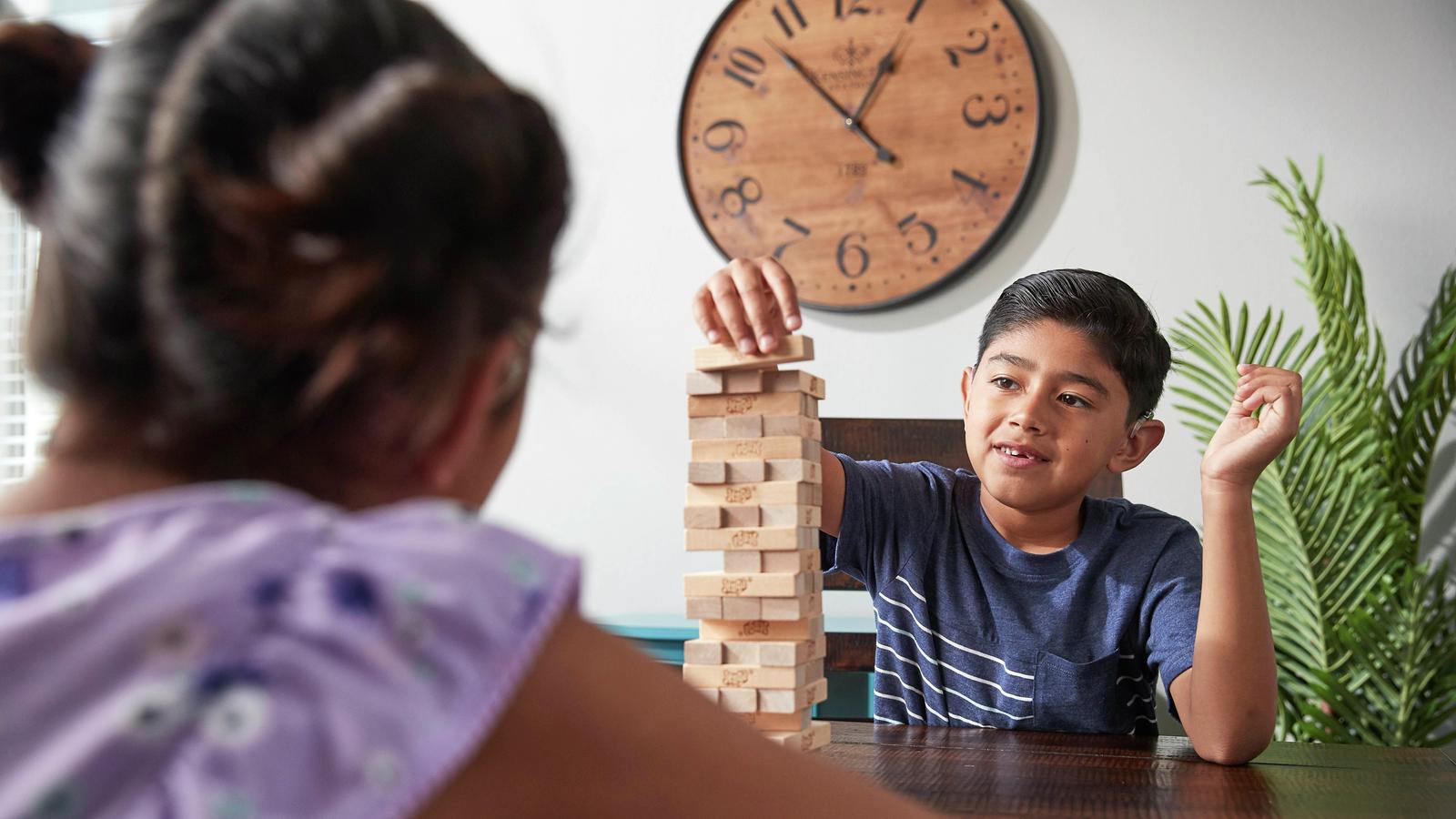Your first appointment
An audiologist can advise you on the best options to treat you or your child's hearing loss. Find out what to expect.

What you'll find on this page
- Things to expect on your first visit.
- How hearing loss is diagnosed.
- Information about treatment options.
What to expect
An audiologist who provides advice and support is important. They are the experts in determining whether a hearing aid or an implant is right for your needs, or for those of your child. Finding the most appropriate solution may change your life.
On the first visit, your audiologist may ask about medical history, recent hearing loss symptoms and general physical health to build a detailed case history.
They may perform or schedule an exam and run tests with the aim of reaching a diagnosis.
Ear exam
Your audiologist may use an otoscope to look into you or your child's ears. This cone-shaped instrument has a light on the end to help them see any physical problems inside the ear.
Hearing test
There are various tests audiologists use to determine the type and degree of hearing loss. These include:
Pure tone sound tests (air conduction test)
In this air conduction test, different pitches and tones are played through headphones or earplugs. The patient signals when they hear a sound. For children, this test is often turned into a game to make the experience fun.
Speech recognition test
This test is similar to the pure tone test but uses words or sentences rather than tones. It helps the audiologist determine how well speech is heard and understood at different volumes.
Bone conduction test
In this test, a metal band with an attachment, called a bone oscillator, is placed against the bone behind the ear. The oscillator sends sounds to the inner ear through the bone by vibration and measures the hearing in the inner hearing pathways.
Receiving your results
The results of the hearing test are usually recorded on an audiogram. This chart maps the degree of hearing loss. Your audiologist will explain the results to you.
Discuss treatment options
Whatever the results show, remember there are treatment options for most types of hearing loss to help you or your child. Your audiologist will advise you, but also consider other factors, such as lifestyle and life stage (school, work, retirement). Once you've covered all the options, they'll outline the next step for treatment.
Try bone conduction hearing
If you or your child are diagnosed with conductive hearing loss, mixed hearing loss or single-sided deafness, it's possible to trial a bone conduction solution. Ask your audiologist for more information.
Find an audiologist / ENT surgeon near you
Disclaimer
Please seek advice from your health professional about treatments for hearing loss. Outcomes may vary, and your health professional will advise you about the factors which could affect your outcome. Always follow the directions for use. Not all products are available in all countries. Please contact your local Cochlear representative for product information.
For a full list of Cochlear’s trademarks, please visit our Terms of Use page.







